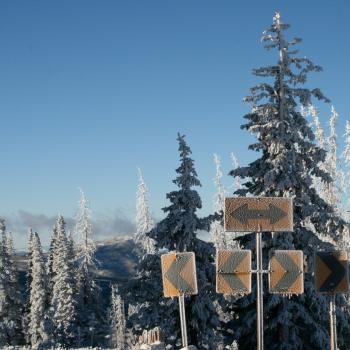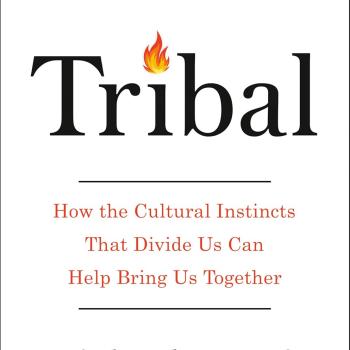It is that larger reality that Ms. Angelou was trying to communicate to me and that I, steeped as I had been in evangelical American Christianity, could not yet get my head around.
When I was a little boy, I was taught that Christianity consisted largely of answering a certain question in the positive: "Do you believe Jesus Christ is the Son of God, the Savior of the world?"
Mere mental allegiance, if you will.
Once they had answered the question—"Have you been saved? Do you know the Lord?" or "Have you professed a belief in Jesus Christ as your personal Lord and Savior?"—in the affirmative, many Christians felt secure in their salvation and left it at that.
So Christianity has often been taught as this equation you solve for x. Something simple and, once solved, done. You can be saved if you read a Gospel tract and assent to its final page. There are three Bible verses, four spiritual laws, five rules of salvation, or a Sinner's Prayer.
In any case, in many Christian traditions, if you answered the question correctly and agreed to the conditions stipulated by your tradition, that was it: you were a Christian. Faith, belief, and eternal life could all be boiled down once and for all into a single question and a single answer. As long as you made that profession before you died, you were set. (I had a childhood fantasy that diverted me during many sermons: I would be a bank robber and kiss a lot of girls and accept Jesus on my deathbed after as depraved a life as the ten-year-old I could imagine.)
And yet, there's Ms. Angelou—may her words echo down through the ages:
"Oh, honey, I am not a Christian. I am trying to be a Christian."
Not just "Do you believe?" but "What do you believe?"
And "How do you believe it?"
Today, as polls like the one in unChristian tell us, many Americans are spiritual refugees, adrift from the traditions they once occupied, if only as an accident of birth. Some have found safe harbor and community in other faith traditions; some are happily voyaging alone; some are feeling windswept, and waves are crashing over their bows. And while a vast number of people continue to find fulfillment in a religious life marked by simple truths and onetime belief statements, for many others, that seeming tropical paradise has not been even remotely tempting.
In my own case, some years ago, after my boat had sprung leaks and I had narrowly escaped rocky waters, I pulled into a harbor where people began, rather than ended, their spiritual journeys. For me, that place was St. James Episcopal Church, an inclusive, multicultural, multiracial church in East Austin, Texas, and more recently, St. David's in downtown Austin. For writer Anne Lamott, another of my heroes (and another who thought Christianity had nothing whatsoever to offer her), it was St. Andrew's Presbyterian Church, an inclusive multicultural community in Marin City, California. Perhaps you've heard other stories or have your own connection to an unlikely group, to a community of believers you stumbled into that rescued you and started you on an authentic journey of faith.
And perhaps you are still looking.
If so, please don't stop. There are such places all over the United States, no matter where you might find yourself. For over twenty years, for example, I have taught in Waco, Texas, described by some as the Baptist Vatican. You might indeed set foot in a dozen extremely conservative Southern Baptist churches before finding a Baptist church that imagines people on a quest to work alongside God in the healing of creation. But eventually you would find yourself at Lakeshore Baptist Church, or at Seventh & James Baptist Church, or at Dayspring. And there, even there in one of the strongholds of conservative Baptist life, you could begin a spiritual journey that would be meaningful and lifelong and not revolve purely around your answering an altar call to claim your salvation once and for all.
And if you don't find the place you're looking for, you could always create your own. My friend Chris Seay started University Baptist Church in the middle of a ruined neighborhood in Waco, offering dynamic worship and a call to social justice. He has since planted Ecclesia, a church in the artsy and freewheeling Montrose district of Houston, which drills water wells in Africa and gets girls out of sexual slavery in Asia. All it takes to be a church is other people who want to worship and serve Christ.
In the churches where I spent my childhood, I was taught that faith was static: the answers were all known, all contained in the Bible, which was God's instruction manual, and that inside the walls of the church, we were in a safe haven from a dark and dangerous world. At St. James Episcopal, though, I was taught that it was okay to ask questions, that doubt was a necessary element of faith, that we journey toward understanding individually and in community, and that I should expect eventually to patch up my battered boat and journey back out into the world rather than dwelling forever in my safe harbor.





